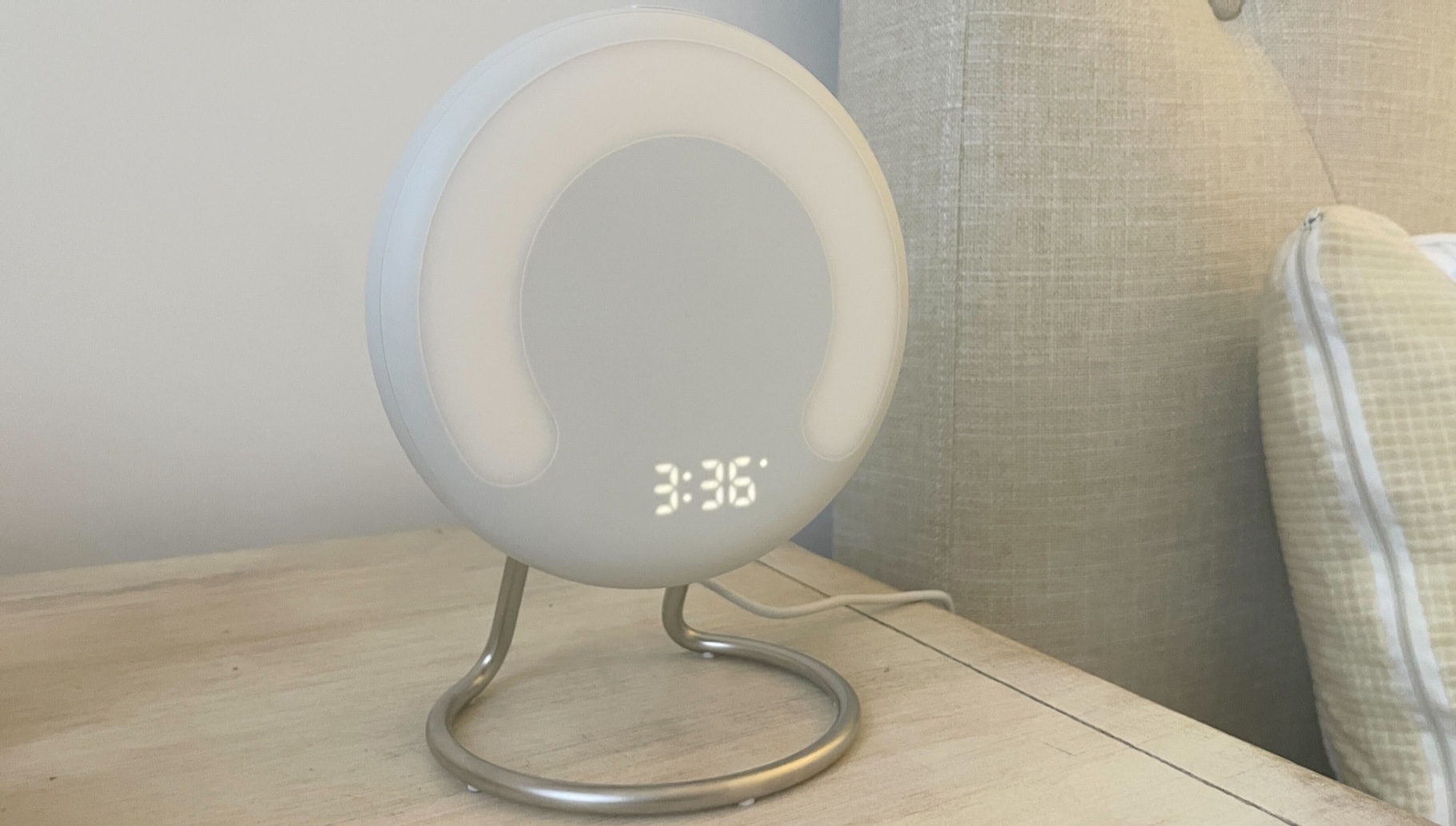Also: These sound machines can actually help you fall asleep faster If you’ve been wondering whether a contactless sleeper tracker would actually work, you’re not alone. I had been asking myself the same question for months, eager to put the Halo Rise to the test. Now, for the past few weeks, the Halo Rise has been my one-stop sleep tracker and alarm, and I’m happy to report that it’s made my mornings brighter in more ways than one.
Specifications
A smart device with a smart design
Wearing tech to bed, no matter how sleek, can be more of a hindrance to sleep than a relaxant, making anyone’s sleep worse before it actually gets better. The Halo Rise sits comfortably on top of my nightstand, eliminating any friction and contact with my wrist, head, or ears. By default, the 6.7-inch white disc displays the time and is held up by a stainless-steel stand, adding to my room’s peaceful bedtime aesthetic. Review: I slept with a meditation headband. Here’s why you should, too Setting up the Halo Rise was as seamless as its appearance. I placed the device by the side of my bed and made sure it was at head level so it could accurately track my sleep behaviors. The rest of the setup process took place in the Halo app. That’s compared with the competing Google Nest Hub, which does rely on extra parts, and tracks your snoring and coughing, as well as movement. That could be both good and bad, depending on what statistics you value and how much of your privacy you’d like to keep… private. The top of the Halo Rise features two buttons – a larger snooze/reading light button and a smaller one to control standby mode/sunset simulation. You can also connect the Halo Rise to your Echo Show or Alexa-enabled device to give the alarm voice commands for an even smarter experience.
An alarm clock worth waking up to
Speaking of sunset/sunrise simulation, this is arguably my favorite feature of the Halo Rise. The Rise features a sliver of LED lights that produce natural-looking sunlight to wake you up. The light gets incrementally brighter to simulate the warm tones of the sun, making even the gloomiest of winter days feel just a tad brighter. For deep sleepers who are worried that the light alone won’t be enough to wake you, alarm chirps accompany the brightness – with five audio tones to choose from within the Halo app – making for a pleasant but effective way to get you out of bed. Also: The 4 best sunrise alarm clocks: Wake up smarter However you set your alarm, I’d recommend you set the time a bit later than you typically wake up, given that the sunrise simulation starts 15 minutes before your desired time, and increases very quickly.
From stats to better sleep
Even though the Halo Rise is a “nearable” as opposed to a wearable, its approach to tracking data is more or less the same: A hypnogram graph within the Halo app presents the time you spent in each state of sleep (light, deep, REM). Also: The 8 best sleep trackers you can buy What’s different is that you can also see how long it took you to fall asleep, and environmental factors like the room’s light level (lux), humidity percentage, and temperature. Halo Rise consolidates these various sleep data points into a digestible sleep score ranging from 0 to 100. The app also prompts you to try different meditation and sleep programs to fall asleep faster, stay asleep longer, and help feel more well-rested throughout the day. I loved having these suggestions on top of Halo Rise’s core functionalities. Also: Apple Watch vs Fitbit: Which tracks sleep better?
Bottom line
If you’re hesitant about wearing tech as you sleep but still want access to sleep data, I’d say the $139.99 Halo Rise is worthy of its price tag. To put it in perspective, it’s only $10 more than the viral Hatch Restore alarm clock, which doesn’t include sleep tracking and requires more real estate on your nightstand. It’s also not backed by a multinational conglomerate. Still, you can color me impressed. The Rise’s environmental recommendations have personally changed my sleep habits for the better and, coupled with the sunrise-in-your-room approach, have made me more awake when I need to be. Open to alternative sleep-tracking devices or smart alarms? Here are some alternatives worthy of your consideration:
